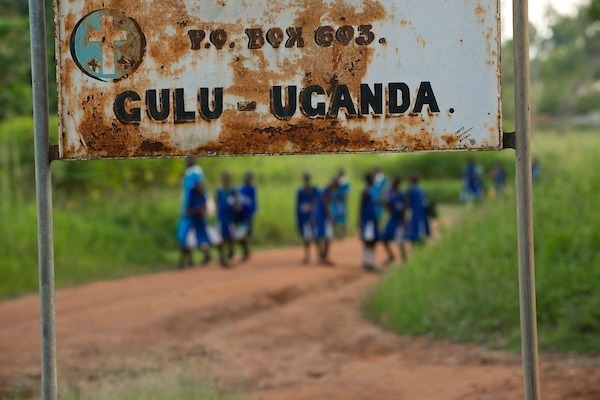
Uganda, like other countries in Africa, is striving to increase the availability and accessibility of hospice and palliative care services. This is done using various delivery methods that include home based care, day care, and inpatient care. Collaboration between the University of Notre Dame and local partners in Indiana and Uganda are supporting these efforts.
Since 2008, the Palliative Care Association of Uganda (PCAU) has partnered with Center for Hospice Care (CHC) in Indiana. This partnership is facilitated by Global Partners in Care, an organization that supports partnerships between hospices in the United States and other parts of the world. The collaboration between PCAU and CHC has resulted in the training of health professionals in hospice and palliative care, production of various advocacy materials, and opportunities for college students from the United States to learn from health professionals in Uganda.
At the University of Notre Dame, CHC works with the Eck Institute for Global Health (EIGH) and the Notre Dame Initiative for Global Development (NDIGD) to better understand the current state of palliative care in Uganda in order to identify gaps and opportunities for strengthening palliative care services and care in the country. CHC and EIGH are collaborating with PCAU to support the collection of timely and accurate data on palliative care throughout the country by using mobile phones, also known as mHealth. This palliative care surveillance system is currently being piloted in 10 facilities across Uganda. Once the project is successfully implemented and scaled up through the country, this national database on palliative care services in Uganda will be made available to service providers and other policy makers in the country, thereby facilitating decision making and advocacy for palliative care.
Led by EIGH faculty, Lacey Ahern, the University of Notre Dame team includes support from the Office of Information Technology and The Center for Social Research. In 2016, in collaboration with NDIGD, EIGH secured matching funding from USAID to support the research and travel of one of EIGH’s master of science in global health students, Katie Anderson, in Uganda. This funding was a part of the USAID | Notre Dame Global Development Fellowships that support graduate students across the United States to work with professionals in developing countries where USAID works. Each year since 2014, NDIGD has worked with USAID to provide fellowships for at least twelve Notre Dame students.
Katie was hosted by PCAU in Uganda and together they worked with various local stakeholders including the Uganda Ministry of Health and Uganda Martyrs University (UMU) on the mHealth project. Katie was involved in training health professionals on how to collect and transmit data using cell phones, testing the devices, and evaluating the quality of the data. EIGH Faculty continue to work with faculty at UMU to evaluate the long term sustainability of this mHealth project.
During a recent visit to Notre Dame, CHC and PCAU representatives described how the funding from USAID and expertise from EIGH has supported the growth of the mHealth project by engaging more stakeholders, including more service providers in the training and testing of the service, as well as supporting Katie’s research.
This case study is just one example of how USAID | ND Global Development Fellowships are providing ways to advance research in developing countries worldwide.
Contact: Grace Munene, Notre Dame Initiative for Global Development, gmunene@nd.edu
Originally published by at ndigd.nd.edu on October 21, 2016.